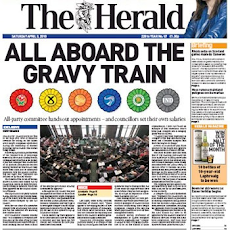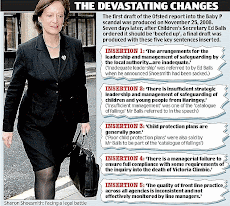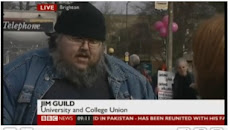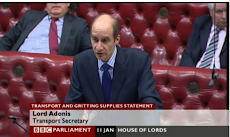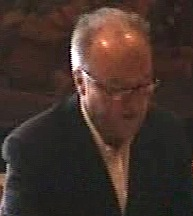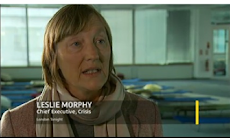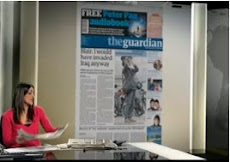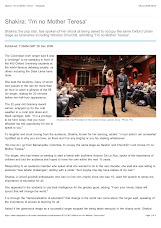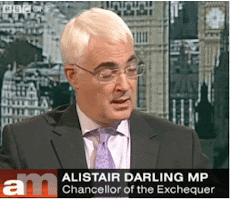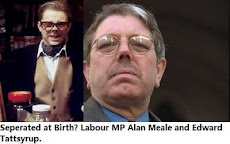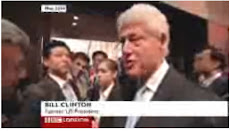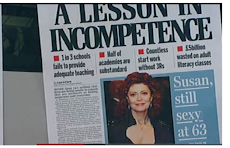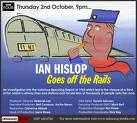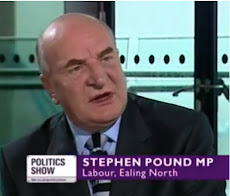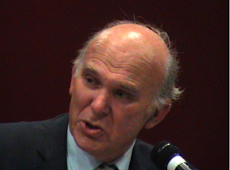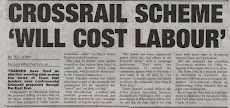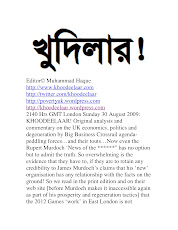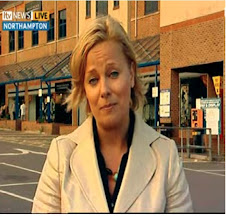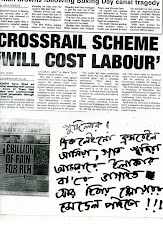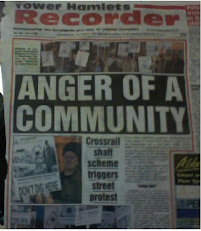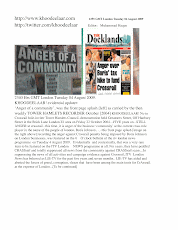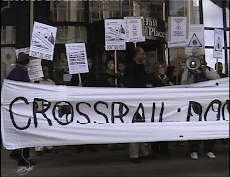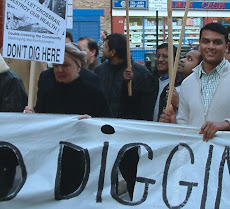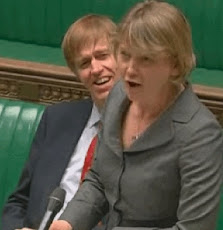2040 Hrs GMT
London
Saturday
03 April 2010
Editor © Muhammad Haque
KHOODEELAAR! No to "Big Business Military Industrial Complex agenda scam Crossrail" CAMPAIGN in defence of the community and of democracy in the East End of London told you so! That in Tower Hamlets during 2000-2006 [whilst she was still in post until 2006 as ‘chief executive’ in the London Borough of Tower Hamlets Council] the controlling clique’s ' 'executive' head' Christine Gilbert aided and abetted the perpetrators of the cliqued agenda and the fakery and anti-democratic conduct. That those anti-democratic elements, who constituted the corrupt clique that controlled Tower Hamlets Council also took part in the de facto selling out of local democracy to Big Business in return for benefits that the clique members sought to gain from personally. They did so in deliberate defiance of their legal duties to uphold the local community's rights... In context of that campaign, we bring here a news item from Glasgow about the de facto corruption that was being spread by a recently exposed Glasgow politician... The lesson of such revelation for Tower Hamlets people is simple: DO NOT trust the slogans and the empty and the easy promises of those who seek or hold political office in your name. Be alert, be vigilant and audit every single one of their 'actions'. That is the only way to ensure that a semblance of accountability will prevail for the ordinary people. This is the least that we should do in order to make sure that the East End of London people do not lose out to the 'career politicians who trade in the name of the people in and of the East End of London'
[To be continued]
[To be continued]
FROM:
The Herald,
Glasgow,
Scotland. Saturday 03 April 2010:
All aboard the gravy train
- 8637967
Published on 3 Apr 2010
Glasgow councillors were free to set their own level of financial rewards for sitting on the dozen arm’s-length companies established during the leadership of shamed politician Steven Purcell, The Herald today reveals.
Following our disclosures this week of the tangled web of patronage weaved by Mr Purcell to keep friends, colleagues and even foes in his pocket, it has now emerged that councillors of all political persuasions decided among themselves who would reap more than £400,000 in additional payments, with the council confirming last night that “payments are decided on by the Aleo boards”.
The boards of the hived-off bodies, known as Aleos and largely run by councillors, decide on their own salaries for sitting as directors, which are then approved by the council’s director of finance.
The city council’s all-party business bureau decides on the political make-up of the board, with the individuals then rubber-stamped by the full council.
Even the vice-chair of a committee charged with scrutinising how Aleos are run has admitted not knowing how salaries are set.
SNP councillor Graeme Hendry said: “It is a mystery to everyone how the Aleos set the level of pay for their board members and senior officers. It most certainly has not been in front of the external governance scrutiny committee for approval.”
Although the city council has said the payments are based on those from long-standing arm’s-length companies such as the SECC and guidance from the Scottish Local Authorities Remuneration Committee, that very body is to investigate Glasgow’s model of payments amid concerns the city has simply devised its own system to top up councillors’ salaries.
Union leaders say there appear to be no clear lines as to how the money is awarded and that there are few checks and balances for how payments have been made.
Last night, Mike Kirby, national chairman of Unison, said: “There appear to be varying models of how they operate systems of remuneration, which are at best ad hoc. What also isn’t clear are the reporting lines back to the council’s external governance and scrutiny committee.
“Councillor Christopher Mason [LibDem leader] is in charge of that body but it’s not quite clear how. The committee may be finding its feet, but if one reads the reports which have come before it they are best anodyne. You do not get an impression of how these businesses are run.”
One leading expert on local government says while there were hundreds of examples of councils across Scotland establishing arm’s-length companies, Glasgow is the only one which pays councillors to sit on their management boards.
Richard Kerley, professor of management at Queen Margaret University, Edinburgh, said: “Glasgow is unique in that it is paying councillors to be on the boards of those organisations. I have not found an example of that elsewhere. That’s what puts Glasgow into a category pretty well on its own.
“I suspect that what happened in Glasgow is that they introduced payment and it became accepted that that’s the way we do things.”
As well as councillors’ pay, those selected for the boards also approve the remuneration of senior officials.
The most extreme case has been that of City Building, previously the local authority’s building and works department, which has allowed salaries for senior managers, some closely associated with the Labour Party, to balloon after it became an Aleo. Directors and executives have allowed the wage bill for senior staff to more than double from at least £730,000 in 2007 to at least £1.5 million in 2009, in the first two full years of nominal independence from the council.
The company has also agreed a salary hike from at least £110,000 to at least £140,000 for its chief executive, Willie Docherty.
A Glasgow City Council spokesman said: “Payments for councillors on Aleo boards are based on precedent at existing companies and guidance from the Scottish Local Authorities Remuneration Committee, including the payments it sets for joint boards.
“These payments are decided on by the Aleo boards but have to be approved by the council’s director of financial services. When the Aleos were established, staff took their council salaries and terms and conditions with them under TUPE rules.”






